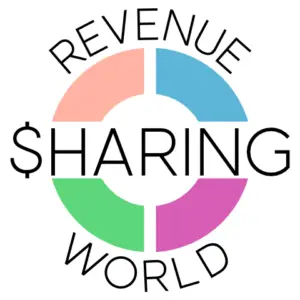Ever wondered what it takes to break into the burgeoning field of affiliate marketing? Despite its increasing popularity, only a fraction of aspiring marketers know that this career path requires a specific set of skills and education.
This blog will shed light on the educational requirements, desired skill set, and practical steps to become a successful affiliate marketer. Intrigued? Read on to unlock your potential in this exciting digital industry!
Key Takeaways
- Affiliate marketing requires specific skills and education to succeed in the field. While a formal degree is not always necessary, having a background in business, marketing, or communication can be beneficial.
- Relevant college majors for affiliate marketing include business, marketing, communication, and digital marketing. These majors provide a strong foundation in key areas such as consumer behavior, advertising principles, and online strategies.
- Desired skills and knowledge for affiliate marketers include business understanding, communication skills, digital marketing knowledge (SEO and social media), analytical skills, copywriting abilities, tech-savviness with web design tools and tracking software, time management skills to stay organized and productive,and adaptability to new trends.
- Online courses are available for aspiring affiliate marketers to enhance their knowledge and learn valuable strategies. Some recommended courses include “Affiliate Marketing for Beginners” on Udemy,coursera -“The Complete 2020 Hands-on Affiliate Marketing Course”,”Affiliate Marketing + SEO Strategy”on LinkedIn Learning,”Affiliate Marketing Masterclass” on Skillshare,and “ClickBank Success – Affiliate Marketing Without A Website”on Udemy.Through these courses learners can gain comprehensive instruction on key aspects of affiliate marketing,such as choosing the right programs,content creation,targeted promotions,and search engine optimization.
Understanding Affiliate Marketing

Affiliate marketing is a type of marketing where individuals promote products or services and earn a commission for every successful sale or referral they generate.
Definition of Affiliate Marketing
Affiliate marketing is a simple way to earn money online. You promote a product for a company on your website or blog. Each time someone buys the product through your link, you get paid.
The company gives you this money as a thank you for sending buyers their way. This is called earning a commission. It’s like being a salesperson on the internet!
Benefits of Affiliate Marketing
Affiliate marketing has many good sides. It is a low-cost business model that doesn’t need much money to start. You can work from any place. There are no set times for this work. You just need a computer and an internet link.
There are also ways to earn passive income with affiliate marketing. This means you can make money while you sleep! The more links people click, the more cash comes your way. So, hard work at the start pays off over time.
Drawbacks of Affiliate Marketing
Affiliate marketing has a few downsides too. One big problem is that many new affiliate marketers earn very little money at first. This can make it hard to keep going and you might feel like giving up.
More so, it’s not easy to get people to click on your affiliate links and buys the product. Sometimes they do click but don’t buy anything, or they might use someone else’s link after clicking yours and you miss out on the commission.
Also, some companies are not honest about their sales numbers which means you get less money than what you should have earned. Spamming is another issue as too many ads may turn off your audience, reducing web traffic and earning potential.
The Role of an Affiliate Marketing Manager

An Affiliate Marketing Manager is key in an online business. He or she keeps track of the marketing plans. They also look after the sales that come from these plans. These managers create strong bonds with partners too.
Their job helps a company to make more money without hard work.
They have many jobs to do each day. One job is to set goals and targets for how much they want to sell. They then focus on hitting those goals with their affiliate programs. At times, they may need to find new partners who can help them reach their aims.
Another part of their job is preparing reports about sale trends and profits made through affiliates using special tools and software.
It’s not just about numbers though – communication skills are vital too! They often talk with partners, making sure everyone understands what needs doing next and helping solve any problems that might come up.
Work doesn’t stop there either as they always keep an eye out for ways they can better use internet trends or even new tech to boost sales further!
The above tasks mean you’ll need a certain level of education if this role appeals – most likely, a degree in areas like business or marketing will be very handy indeed! Giving examples here; The University of Georgia gives good courses in these subjects which are seen highly by employers, especially since typical earners make around $45k per year following course completion!
Educational Requirements for Affiliate Marketing

To excel in affiliate marketing, it is essential to have a strong educational background and acquire the necessary skills. Read on to explore the relevant college majors, desired knowledge, and online courses that can help you succeed as an affiliate marketer.
Relevant College Majors for Affiliate Marketing
If you’re interested in becoming an affiliate marketer and want to pursue a college degree, there are several relevant majors that can help you in this field:
- Business: A degree in business can provide you with a strong foundation in marketing strategies, consumer behavior, and market analysis. It can also teach you about financial management and budgeting, which are important skills for managing affiliate marketing campaigns.
- Marketing: A marketing degree focuses specifically on the principles of advertising, branding, and consumer research. This major can give you a deeper understanding of how to attract customers and promote products effectively through affiliate marketing.
- Communication: A communication degree can enhance your skills in written and verbal communication, which are essential for creating compelling content and building relationships with your audience. It can also help you develop networking abilities that are valuable for establishing connections with potential affiliate partners.
- Digital Marketing: With the rise of online advertising, digital marketing has become increasingly important. Pursuing a degree or certificate program in digital marketing can teach you about search engine optimization (SEO), social media marketing, email marketing, and other digital strategies that can optimize your affiliate marketing efforts.
Desired Skills and Knowledge
To succeed as an affiliate marketer, there are certain skills and knowledge you should have. Here are what you need:
- Business understanding: Knowing how businesses operate and the basics of marketing is crucial for affiliate marketing success.
- Communication skills: Being able to effectively communicate with your audience, advertisers, and other affiliates is important for building relationships and promoting products.
- Digital marketing knowledge: Understanding online marketing strategies like search engine optimization (SEO), social media marketing, and email marketing will help you drive traffic to your affiliate links.
- Analytical skills: Being able to analyze data, track conversions, and make data-driven decisions is essential for optimizing your campaigns and increasing revenue.
- Copywriting skills: Writing compelling content that persuades readers to take action can significantly boost your conversion rates.
- Tech-savviness: Familiarity with basic web design, content management systems (CMS), and tracking tools can help you effectively manage your affiliate campaigns.
- Time management: Being able to prioritize tasks, set goals, and manage your time efficiently will ensure you stay organized and productive in this fast-paced industry.
- Adaptability: Affiliate marketing is constantly evolving, so being adaptable to new trends and technology changes is crucial for staying ahead of the competition.
Online Courses for Affiliate Marketing

Discover the top online courses that can help you kickstart your affiliate marketing journey and learn valuable strategies for success. Don’t miss out on this opportunity to enhance your knowledge and skills in the industry!
Top Online Courses for Aspiring Affiliate Marketers
Aspiring affiliate marketers can take advantage of numerous online courses designed to help them get started in this dynamic field. These courses offer comprehensive instruction on key aspects of affiliate marketing such as choosing a niche, selecting the best affiliate programs, producing traffic-generating content, and promoting affiliate links.
| Course Name | Platform | Course Details |
|---|---|---|
| Affiliate Marketing for Beginners | Udemy | This course offers an in-depth introduction to affiliate marketing, covering topics such as how to choose the right affiliate programs and create engaging content. |
| The Complete 2020 Hands-on Affiliate Marketing Course | Coursera | Designed for beginners, this course provides comprehensive instruction on core concepts in affiliate marketing, including traffic generation and conversion optimization. |
| Affiliate Marketing + SEO Strategy | LinkedIn Learning | This course focuses on how to improve search engine rankings to drive more traffic to affiliate links, thus increasing potential revenues. |
| Affiliate Marketing Masterclass | Skillshare | Offering step-by-step guidance on key aspects of affiliate marketing, this course aims to help learners develop a sustainable and profitable strategy. |
| ClickBank Success – Affiliate Marketing Without A Website | Udemy | This course provides a unique approach to affiliate marketing, focusing on how to make the most of ClickBank’s marketplace even without a website. |
Remember, success in affiliate marketing requires not only joining a program and creating content, but also using the right tools to stay competitive. These courses provide a solid foundation for aspiring affiliate marketers, offering the knowledge and skills needed to thrive in this field.
Practical Steps to Becoming an Affiliate Marketer
Choose a niche that aligns with your interests and expertise, find the best affiliate programs in that niche, decide on a publishing platform (such as a blog or YouTube channel), create traffic-generating content, and promote your affiliate links to start earning commissions.
Choosing a Niche
Choosing a niche is an important step in becoming an affiliate marketer. A niche is a specific topic or area of interest that you will focus on when promoting products or services.
It’s essential to choose a niche that aligns with your passions and expertise, as this will make it easier for you to create content and connect with your target audience. Consider factors like profitability, competition, and audience size when selecting your niche.
Remember to conduct thorough research to find a profitable yet less competitive niche within the larger market. By choosing the right niche, you can position yourself as an authority and increase your chances of success in affiliate marketing.
Finding the Best Affiliate Programs
To find the best affiliate programs, start by doing research and looking for reputable companies that offer affiliate partnerships. Consider factors like the products or services they offer, the commission rates they provide, and their track record of paying affiliates on time.
Look for affiliate networks or platforms that can connect you with a variety of programs to choose from. Additionally, consider joining forums or online communities where fellow affiliates share their experiences and recommendations.
Remember to focus on programs that align with your niche or target audience to increase your chances of success.
Choosing a Publishing Platform
When it comes to choosing a publishing platform for your affiliate marketing business, there are several options to consider. One popular choice is creating your own website using platforms like WordPress, Drupal, or Joomla.
These platforms provide user-friendly designs and customizable features that can help you create a professional-looking website. Another option is utilizing social media platforms like YouTube or Facebook to reach your audience through videos or ads.
Additionally, you can also explore email newsletters and podcasts as publishing platforms to engage with your target market. Ultimately, the best platform for you will depend on your specific goals and target audience.
Producing Traffic-Generating Content
To generate traffic for your affiliate marketing business, you need to create content that attracts and engages your target audience. This can include product reviews, how-to guides, tutorials, and top X lists.
By providing valuable information and addressing their needs or interests, you can build trust with your audience and encourage them to click on your affiliate links. Remember to optimize your content for search engines by using relevant keywords and writing descriptive titles and meta descriptions.
Additionally, promoting your content through social media, email newsletters, podcasts, and paid advertising can help drive even more traffic to your website.
Promoting Affiliate Links
Promoting affiliate links is a crucial step in becoming a successful affiliate marketer. Once you’ve chosen your niche and found the best affiliate programs, it’s time to start driving traffic to your content.
There are several strategies you can use to promote your affiliate links and increase your chances of earning commissions. One effective method is through content marketing, where you create useful and engaging articles, videos, or podcasts that include your affiliate links naturally.
Another option is paid advertising on platforms like Facebook or Google Ads. You can also leverage email newsletters, social media posts, or even guest posting on relevant websites to reach a wider audience.
Affiliate Marketing without a Degree
Learn the ropes of affiliate marketing through online resources and gain valuable experience through internships.
Learning through Online Resources
There are various online resources available for beginners to learn about affiliate marketing. These resources can provide valuable information and guidance, helping you to navigate the world of affiliate marketing successfully. Here are some options to consider:
- Websites and Blogs: Explore websites and blogs that specialize in affiliate marketing. These platforms often offer free guides, tutorials, and case studies that can help you understand the fundamentals of affiliate marketing.
- Online Courses: Take advantage of online courses specifically designed for aspiring affiliate marketers. These courses cover topics such as finding profitable niches, promoting products effectively, and optimizing your website for maximum conversions.
- YouTube Channels: Many experienced affiliate marketers share their knowledge and expertise through YouTube videos. Search for reputable channels that offer insights into different aspects of affiliate marketing and watch their informative content.
- Affiliate Marketing Forums: Join online forums dedicated to affiliate marketing, where you can connect with like-minded individuals, ask questions, and learn from experienced affiliates who are willing to share their knowledge.
- eBooks and Guides: Look for eBooks or comprehensive guides on affiliate marketing that provide step-by-step instructions on how to get started, build a successful website, generate traffic, and maximize revenue through effective promotion strategies.
- Social Media Communities: Engage with communities on social media platforms such as Facebook Groups or LinkedIn Groups focused on affiliate marketing. Participate in discussions, ask questions, and gain insights from industry professionals.
- Podcasts: Listen to podcasts that discuss topics related to affiliate marketing. Many podcasts feature interviews with successful affiliates who share their strategies and experiences in an easily digestible audio format.
Gaining Experience through Internships
Internships are a great way for beginner affiliate marketers to gain valuable experience in the field. By participating in internships, individuals can get hands-on training and learn about different aspects of affiliate marketing.
Through these opportunities, you can develop practical skills in content creation, market research, and promotion strategies. Internships also provide networking opportunities where you can connect with industry professionals and learn from their expertise.
Additionally, internships allow you to work on real projects and gain exposure to various niches and products within the affiliate marketing industry. It’s a valuable pathway to enter the field and establish yourself as an affiliate marketer.
The Earning Potential of Affiliate Marketers
Affiliate marketers have the potential to earn a good income through their efforts. While it can vary, some affiliate marketers make over $50,000 per year. The amount you can earn depends on various factors such as the products or services you promote, your commission rates, and the level of engagement and traffic you generate.
It’s important to note that earning potential increases as your affiliate marketing skills improve and your audience grows. According to statistics, 75% of affiliate marketing managers hold a bachelor’s degree, with business, marketing, and communication being popular majors for this field.
This indicates that investing in education related to affiliate marketing can potentially lead to higher earning opportunities in this field.
Conclusion
In conclusion, while a formal education is not always necessary for affiliate marketing, having a degree in business, marketing, or communication can provide valuable knowledge and skills.
Additionally, online courses and self-learning resources are available to gain expertise in this field. Ultimately, success in affiliate marketing comes down to creating engaging content, building trust with your audience, and effectively promoting products or services through various platforms.
FAQs
1. What do I need to learn for affiliate marketing?
You may need to know how to create a website, join an affiliate program, cloak affiliate links and track affiliate campaigns. Also, using tools like Google Analytics or Semrush can be very helpful.
2. How can I monetize my blog as a content creator with affiliate marketing?
By joining referral programs like Amazon Associates or ShareASale, you can earn from your blog posts. You just have to place their deals and coupons on your site as banners or in your articles.
3. Can a retailer also become an online business owner through Affiliate Marketing?
Yes! Retailers can use the Hostinger Affiliate Program and set up multiple campaigns on their own websites built by tools such as Hostinger Website Builder for extra earnings.
4. Do I need any specific education to make money with Kinsta’s Affiliate Program?
No special training is needed but understanding cost-effective methods like PPC marketing, Facebook Ads and mastering tracking cookie usage via platforms such as Post Affiliate Pro is beneficial for boosting income
5. Are there ways to scale my online business model through Affiliate Marketing?
Absolutely! Tools like Ubersuggest help identify trends while OptinMonster optimizes customer interactions You might also consider linking high-quality visuals or unboxing videos onto resource pages of your website.
6. Is it possible to bring in more earnings by making product try-ons much better?
Sure! Both micro-influencers and large influencers gain larger earnings through hauls with high commission items from subscription-based businesses that offer recurring commissions.


